 * Image source: Tongil News
* Image source: Tongil News‘Walter Sharp, Commander of the United Sates Forces of Korea, speaking to the U.S. soldiers,
before Obama’s consolation visit to them in the Songtan AFB, Pyeongtaek, Nov. 19, 2009’
(Image source: Tongil News)
Yonhap News
By Hwang Doo-hyong
WASHINGTON, Dec. 14 (Yonhap) -- The United States said Monday it will deploy some of its troops in Korea to other conflict regions in the future to meet growing security challenges both regionally and globally.
"We also need to have our forces in Korea in the future to be able to more regionally engaged and globally deployed," Gen. Walter Sharp, commander of U.S. forces in Korea, told a forum at the Center for Strategic and International Studies here. "Regionally engaged and globally deployed, but never forgetting that our No. 1 responsibility in Korea is to defend the Republic of Korea if we did go to war."
Sharp's remarks are in line with those of Adm. Michael Mullen, chairman of the Joint Chiefs of Staff, who said earlier this month that the Obama administration will follow up on the strategic flexibility posture drawn up by the Bush administration for rapid deployment of U.S. troops abroad to conflict regions.
"The idea of strategic flexibility is one we are addressing with the South Korean leadership," Mullen said. "We think it is very important, part of a strategic concept for security both for the region and globally."
About 28,500 U.S. troops are currently deployed in Korea as a legacy of the 1950-53 Korean War.
Mullen also said in October that discussions are under way about rotating U.S. troops in South Korea, although he added, "We are very committed to 28,500 troops' presence in South Korea. That's strongly reaffirmed by President Obama, both publicly as well as his meetings with President Lee (Myung-bak)."
Sharp explained the contradiction in Mullen's remarks, saying some of the 28,500 U.S. troops to be deployed abroad will eventually return to South Korea, where their dependents reside.
"Sometime in the future we could have forces that could, with consultations between both nations, be able to deploy, either ourselves or together, in different places around the world," Sharp said. "But not deploy away and not come back to Korea, but deploy away with the families remaining in Korea, and then come back to Korea after the deployment, never forgetting our No. 1 responsibility."
South Korean officials have denied media reports about a possible troop reduction in Korea, prompted by remarks by Obama to American soldiers in Seoul last month. "The story of your service goes beyond this peninsula," Obama said. "Others among you served in Afghanistan. Others among you will deploy yet again."
Seoul officials have said they had never discussed a troop reduction with the U.S., adding that Obama's remarks should be seen as a routine rotation of troops without reducing the number.
In announcing the plans to send a 140-strong Provincial Reconstruction Team to Afghanistan next year, accompanied by about 320 troops for their protection, South Korean Foreign Minister Yu Myung-hwan recently said that increased aid to Afghanistan by South Korea is linked to the stable deployment of U.S. troops in the Korean Peninsula.
Sharp said that the redeployment of U.S. troops in Korea will take place in close consultation with South Korea.
"The regional engagement and global deployment, we are not ready for that to happen today," he said. "We have to be able to work through, but be able to at least have the ability to be able to look at where do we want, what capability do we have in the alliance that can help both regionally and globally and the security and the challenges or opportunities we have."
On South Korea's retaking of the wartime command control of its troops from the U.S. in 2012, the U.S. commander said, "The OPCON transfer will take place on the 17th April, 2012."
"I am convinced that we will be militarily prepared for that," he said. "OPCON transition does not mean an independent OPCON. We will still be in the alliance and the coalition will still be committed to fig
 ht side by side."
ht side by side."hdh@yna.co.kr
(END)
* More related blogs
http://nobasestorieskorea.blogspot.com/2009/12/four-party-talks-no-re-dispatch-to.html
Tuesday, December 15, 2009
Four Party Talks! No Re-Dispatch to Afghanistan! No Illegal Defense Sharing Cost! And Returning Back of the Dongducheon USFK Base, Soon!
http://nobasestorieskorea.blogspot.com/2009/11/text-fwd-us-soldiers-in-korea-negative.html
Wednesday, November 4, 2009
Text Fwd: US Soldiers in Korea Negative About Rotation to Middle East
* Related article
Korea Times
12-15-2009 19:04
USFK Commander Hints at Troop Redeployment
By Jung Sung-ki, Staff Reporter
* Related Korean article
Tongil News
Sharp, “ Overseas Deployment of the United States Forces of Korea (USFK)… Along with the South Korean Soldiers”:
Clearly Shown of the ‘Strategic Flexibility’ between the R.O.K.-U.S...
“ Loosened of the Reins, with the Launch of the Lee Myung-Bak (2MB) Government.”
샤프 "주한미군 해외배치... 한국군도 함께"
한.미 '전략적 유연성' 가시화... "MB정부 들어 고삐 풀렸다"
Dec. 15, 2009
Jeong Myung-Jin (mjjung@tongilnews.com)

![[URGENT PLEA: In Update] EMERGENCY in GANGJEONG Since AUG. 24, 2011](http://2.bp.blogspot.com/-3iz8k-USXVY/TlmRYhhIYtI/AAAAAAAAL2c/9dbF85ZIkIs/s227/jejusit.jpg)
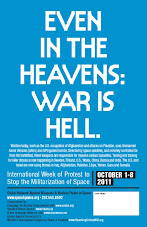
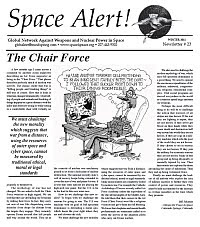

![[Solidarity from Japan for the Jeju] 253 individuals and 16 groups/organizations](http://2.bp.blogspot.com/_gnM5QlRx-4c/TR_YeNVE1yI/AAAAAAAAHWQ/ARyf6oQN0S0/S227/jeju_12_10j.jpg)
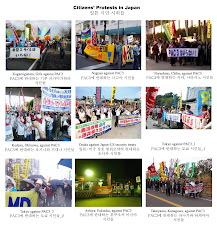
![[Translation] Korean organizations' statement: Immediately cancel the joint ROK-US drill Nov 26](http://2.bp.blogspot.com/_gnM5QlRx-4c/TPOE8VKXHFI/AAAAAAAAGlM/8lryt-8sFjc/S227/1.jpg)
![HOT! [Hankyoreh Hani TV] Beneath the Surface: the investigation into the sinking of the Cheonan](http://4.bp.blogspot.com/_gnM5QlRx-4c/TOI83qht8aI/AAAAAAAAGXU/22SW6Q5ntV8/S227/HaniTV%2BCheonan.gif)

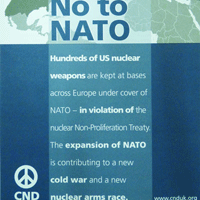

![[Translation]Statement against illegal inspection and unjust lay-off by the Kunsan USAFK!(Nov_2010)](http://4.bp.blogspot.com/_gnM5QlRx-4c/TOPLsVkZMqI/AAAAAAAAGZs/3YnnckIyAaY/S227/gunsan%2Bprotest.gif)
![[Translation] Korean organizations' statement against dispatching special force to the UAE on Nov.](http://4.bp.blogspot.com/_gnM5QlRx-4c/TOP95zHXlCI/AAAAAAAAGak/E0Ug1XtUFfM/S227/antiwarpeace.jpg)
![[Translation] Stop, Joining MD!: South Korean activists' statement and writing on Oct. 25, 2010](http://3.bp.blogspot.com/_gnM5QlRx-4c/TOP7Es4_2sI/AAAAAAAAGac/eWVMPD-U4p0/S227/StopMD.jpg)
![[In Update] People First, NO G-20 (Nov. 6 to 12, Korea)](http://2.bp.blogspot.com/_gnM5QlRx-4c/TJd53XBzHlI/AAAAAAAAFQo/ldO9JPE3eqo/S227/left21_G20.jpg)
![[International Petition] Stop US helipad plan in Okinawa to save great nature](http://4.bp.blogspot.com/_gnM5QlRx-4c/TKC2AHRNzBI/AAAAAAAAFUo/yGWXODTw_uM/S227/yanbaru_w.jpg)

![[Global Network] against the first launch of Quasi-Zenith Satellite, Japan, on Sept. 11, 2010](http://4.bp.blogspot.com/_gnM5QlRx-4c/TIowa1boy4I/AAAAAAAAFDI/82rAi98uq-c/S227/Qzss-45-0_09.jpg)

![[In update] Some collections on the Koreans’ protests against the sanction & war on Iran](http://4.bp.blogspot.com/_gnM5QlRx-4c/TJMvke6t8zI/AAAAAAAAFO4/tamQ8LUnOOA/S227/No+Sanction+on+Iran.jpg)
![[Three International Petitions] to End the Korean war and peace treaty(or peace resolution)](http://1.bp.blogspot.com/_gnM5QlRx-4c/THef7bzWxYI/AAAAAAAAE44/wwdzSDfYhdw/S227/border.jpg)
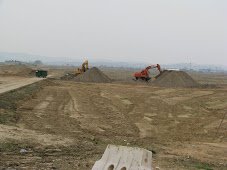


![[Collection of Documents] No Base Learning and Solidarity Program_Korea(June 14 to 20, 2010)](http://1.bp.blogspot.com/_gnM5QlRx-4c/TCTvVuN8NeI/AAAAAAAAEek/8vBJVaHdk10/S227/No-Base-banner.jpg)
![Site Fwd:[John Hines] A U.S. Debate coach’s research trip on the Issues of Korea](http://3.bp.blogspot.com/_gnM5QlRx-4c/TINCO36mzzI/AAAAAAAAE_w/Rds12NcBOXM/S227/Jeju-Peace-Tour.jpg)


![[News Update] Struggle Against the Jeju Naval Base since Jan. 18, 2010](http://1.bp.blogspot.com/_gnM5QlRx-4c/S1vvWaP25uI/AAAAAAAACkg/QvpW1tgOlKM/S226/scrum1.jpg)


![[Urgent] Please spread the Letter!: There was no Explosion! There was no Torpedo! (May 26, 2010)](http://4.bp.blogspot.com/_gnM5QlRx-4c/S_9JmsKEU7I/AAAAAAAAEP8/sAWjSPqxzUI/S227/grounded.jpg)
![Text Fwd: [Stephen Gowans]The sinking of the Cheonan: Another Gulf of Tonkin incident](http://1.bp.blogspot.com/_gnM5QlRx-4c/TAL_FtYKQ-I/AAAAAAAAERE/NEEMijiEcRM/S227/lee-myung-bak.jpg)
![[Japan Focus]Politics in Command: The "International" Investigation into the Sinking of the Cheonan](http://1.bp.blogspot.com/_gnM5QlRx-4c/TBMJ2syJzyI/AAAAAAAAEZU/uTYZccU5vyk/S227/wen_jiabao_and_lee_myungbak.png)
![[Japan Focus] Who Sank the SK Warship Cheonan? A New Stage in the US-Korean War and US-China](http://2.bp.blogspot.com/_gnM5QlRx-4c/S_iQ2vE5ZpI/AAAAAAAAEOU/Oo1SPcAe8FE/S227/buoy_map.gif)
![[Updated on 12/13/10] [Translation Project] Overseas Proofs on the Damages by the Military Bases](http://4.bp.blogspot.com/_gnM5QlRx-4c/S-qSj59gPLI/AAAAAAAAEGM/mwjlFtPE-jo/S227/missile.jpg)
![[International Petition] Close the Bases in Okinawa](http://3.bp.blogspot.com/_gnM5QlRx-4c/S8-z3DYNwNI/AAAAAAAADo4/OswTSchK09M/S227/2.jpg)

![[In Update]Blog Collection: No Korean Troops in Afghanistan](http://4.bp.blogspot.com/_gnM5QlRx-4c/SwnlLD9IewI/AAAAAAAAB9E/oUPssnpNidA/S226/No-Troops-to--Afghanistan.jpg)
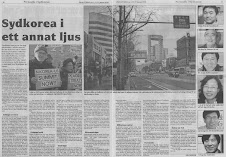

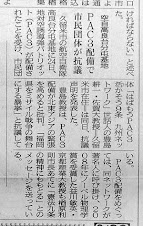

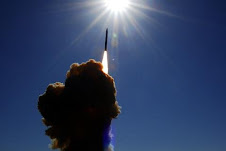



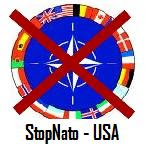


No comments:
Post a Comment